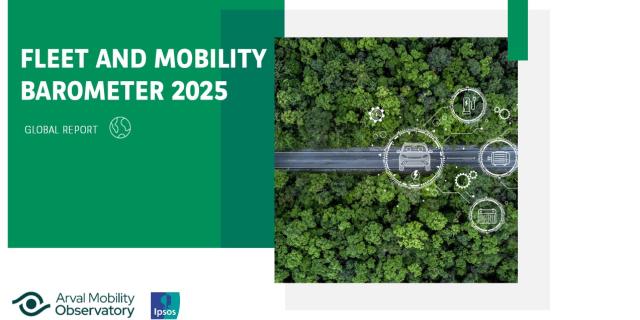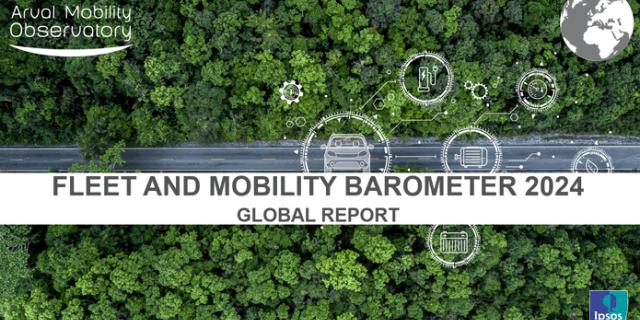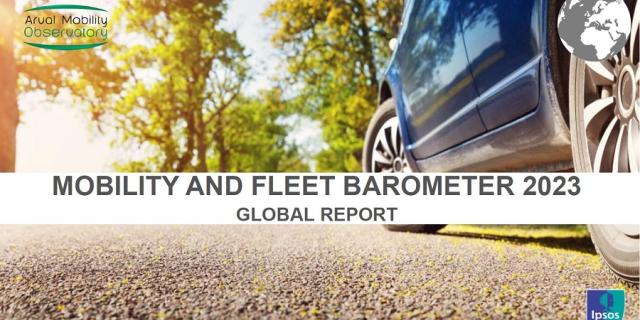Arval Mobility Observatory is pleased to share with you a synthesis of changes to statutory taxation and the associated mechanisms evolutions on corporate mobility in Europe and Latin America, by country.
As follows, you will find a non-exhaustive list highlighting the evolution of governmental taxation, and specific mobility schemes in several European and Latin countries (Austria, Belgium, Chile, Czech Republic, France, Germany, Norway, Spain). You can check each country by selecting it on the list below.
If you are interested in the Tax Evolution 2025 for fleets you can check this article.
The information presented in this synthesis has been collected in January 2025, and published in February 2025.
-
Austria
Update 2025: Legislation mandates that all energy providers must offer dynamic energy prices based on the actual prices of the energy stock exchange. This means that energy prices – and therefore charging – can be cheaper or more expensive depending on the time of day.
-
Belgium
Currently, there is no imposition for companies to offer mobility solutions.
2024 Update:
The federal government confirmed two formulas for calculating the federal mobility budget. One is based on the real costs of the last 4 years, and the other on reference vehicles. The method of calculation must be the same for all employees of the company. After three years, the method can be changed.
-
Chile
Mobility for Employees
Chile lacks mandatory mobility benefits for employees but encourages sustainable practices through corporate sustainability programs.
Specific Legislation Promoting Sustainable Mobility
The Chilean government actively promotes electromobility and sustainable transport, including the National Electromobility Strategy. This aims for 100% of public transport and 40% of private vehicles to be electric by 2040. Specific laws, such as extended warranties for EV batteries, support the growth of the EV market.
Imposition for Companies to Offer Mobility Solutions/Budgets
While there are no direct mandates for companies to provide mobility budgets, the Extended Producer Responsibility (EPR) Law encourages sustainable corporate practices. Incentives for incorporating EVs into corporate fleets align with the government’s broader climate goals.
-
Czech Republic
Mobility for Employees
At present, there is no governmental legislation on sustainable mobility or mobility for employees. It is regulated on a municipal or company level. For example, Prague has its own comprehensive plan to promote sustainable mobility through support of public transportation, bike riding, walking, carsharing, etc.
-
France
Below you will find a summary of all the changes in mobility taxation in 2025. For further information and details, you can check the dedicated Arval Mobility Observatory France article on this topic.
Use of Personal Vehicle
Transport Allowance: The usual conditions for the transport allowance are fully applicable again since January 1, 2025.
Sustainable Mobility Package (Le forfait mobilités durables)
Definition and Fiscal Regime: No changes, but now includes carpooling with family members. Subject to meeting unchanged conditions, the amounts paid to beneficiaries under a sustainable mobility package are exempt from social security contributions and CSG-CRDS up to a limit of €600 per year since January 1, 2025.
The transport allowance can be combined with the sustainable mobility package. In this case, the total coverage is exempt from social security contributions and income tax up to a limit of €600 per year per employee, with a maximum of €300 for fuel expenses, subject to meeting the specific conditions of each scheme.
Complementary Measures
Public Transport Subscription Reimbursement: The derogatory rules for social security exemption have not been extended in 2025.
Fleet of Bicycles: Updated tax reduction rules for the purchase or rental of bicycle fleets.
-
GERMANY
Promotion of Bicycle Lanes and Bus Lanes
Changes to the Road Traffic Act and Road Traffic Regulations will facilitate the expansion of bicycle lanes and bus lanes in urban areas. The goal is to enhance environmental and climate protection as well as public health. Cities can now more quickly and easily designate additional bus lanes to accelerate and improve the appeal of public transportation.
Introduction of the Mobility Pass in Baden-Württemberg
Baden-Württemberg will introduce a state-level mobility law that includes a mobility pass. This will be financed through contributions from citizens and aims to make public transportation more attractive. Various funding models are under consideration, such as a levy on all residents aged 18 and older or exclusively on vehicle owners. Residents in Baden-Württemberg municipalities will pay an annual fee to finance and improve local public transportation. The adoption of the mobility pass depends on the passage of the law and decisions by individual municipalities on whether and when to implement it.
The numerous changes in the fleet and mobility sector highlight the dynamic development toward sustainable and efficient transportation solutions. However, additional political decisions and adjustments could arise following the federal elections scheduled for February this year, further influencing this transformation.
-
NORWAY
Mobility for Employees
The most common mobility solution offered to employees in Norway is car allowance. Employers can pay a distance-based allowance to their employees for work-related travel by private car. Some portions of this allowance may be taxable. In 2025, the rate for car allowance is NOK 5 (EUR 0.43) per driven kilometer.
Specific Legislation Promoting Sustainable Mobility
Deductions for CO2 emissions, also called the negative rates, are removed for both PCs and LCVs. Within 2030, Oslo, the capital of Norway, is going to be a zero-emission zone. This is already promoted by an increased number of parking spots for charging only eligible for EVs.
Imposition for Companies to Offer Mobility Solutions/Budgets
No special mobility solutions exist, but employers can contribute with payment of public transport. Payment is taxed as salary.
-
SPAIN
The Sustainable Mobility Law will make it mandatory for company with corporate buildings with more than 500 employees (or 250 with more than one shift) to have a sustainable mobility plan. Also, properly reporting and reducing fleet emissions will become increasingly important due the Corporate Sustainability Reporting Directive (CSRD), in force from 2025 onwards.
Mobility for Employees
The Spanish government has been progressing with the Sustainable Mobility Law (expected to be published in 2025), aiming to promote decarbonized and digitized mobility, as well as boosting the use of public transport and zero-emission solutions. This law supports the Secure, Sustainable, and Connected Mobility Strategy 2030 and the Recovery, Transformation, and Resilience Plan (PRTR). The Law recognizes Mobility as a social right for all citizens.
Specific Legislation Promoting Sustainable Mobility
The Sustainable Mobility Law also aims to reduce dependence on fossil fuels and the resulting greenhouse gas emissions, thereby improving air quality. It encourages the use of public transport and supports the development of infrastructure for electric vehicles.
Imposition for Companies to Offer Mobility Solutions/Budgets
While the Sustainable Mobility Law promotes sustainable transport solutions, specific obligations for companies to offer mobility solutions or budgets are not explicitly detailed in the available information.
Legal disclaimer
Whilst every care has been taken to ensure the accuracy of this synthesis of changes to statutory taxation and the associated mechanisms evolutions in Europe (the “Synthesis”), , Arval Service Lease, through its Arval Mobility Observatory ( “ARVAL AMO”) does not give any representation or warranty as to the legal, regulatory, tax or accounting implications of the matters referred to in this Synthesis nor for the accuracy of the information provided herein. This Synthesis is provided for information only. Thus, this Synthesis cannot be assimilated as a tax advice /recommendation issued by Arval AMO. Therefore, any recipient of this Synthesis should take independent advice where necessary. In this respect, ARVAL AMO is not responsible or liable for any liability, loss, claim, cost, or expense that could be incurred by any recipient as a result of relying on any information contained in this Synthesis.











